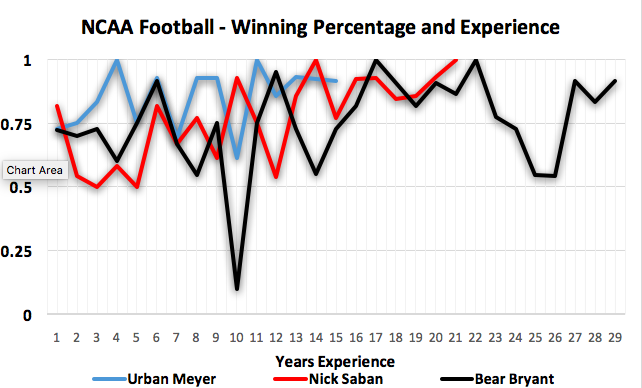The Gift of Humility
Merriam-Webster defines humility as, “freedom from pride or arrogance. The quality or state of being humble.”
The older I get the more I see humility not only as a virtue, but also as a competitive advantage in sports and life. Elite leaders, coaches, and educators all share this elusive trait. Sure, you can win and lack humility. However, the people I admire most, the ones who excel at work and in their personal life, all share the gift of being humble. Below are ten ways to display and use the gift of humility.
- Admit shortcomings: We cannot do it all, nor can we be great all the time. It is critical to free ourselves up and acknowledge that there will be times we will underperform. The transformational coach, Matt Deggs, says it best when he tells his team before every season, “Boys, sometimes you are just going to have to overcome the coaching.”
- Listen while others talk: Most people are in a race to demonstrate how much they know (for an example observe the posturing that often takes place on social media). Every interaction is an opportunity to learn. If we spend the whole time talking, we miss the opportunity to listen and gain valuable insight.
- Make time for others: I had the opportunity to take my son to the Pittsburgh Pirate game and be on the field for batting practice. While we were in awe watching Big League hitters effortlessly hit baseballs out of the yard, the most impressive performance was watching the Pirate Skipper, Clint Hurtle, connect with ushers and staff. “Thank you for all you do for us.” If he finds time, so can I.
- Ask for help: As we get older, and our level of responsibility increases, many of us struggle being vulnerable. We are afraid that by asking for assistance we will look weak. How silly. Why waste time faking it? Humility will save us time and money. Ask great questions and receive great answers.
- Delegate: Once we make the decision to delegate we must fully entrust in that person to do the job. I worked with hitters for 13 years in collegiate baseball prior to last season. Luckily, I found someone much better than me. I fired myself from that role and stepped away. I made the decision that I was no longer in charge and that I would abstain from meddling. This was easily one of my best professional decisions.
- Never be the smartest person in the room: It takes humility to surround yourself with powerful thinkers who will challenge and push. It is much easier to play it safe and always be the expert. The best leaders actively pursue people who are the best in their field. This humble nature allows them to build elite teams, and we all know a strong team will defeat an individual any day of the week.
- Root for your competitors: “Iron sharpens iron.” The best in the world see their competition as sparring partners not adversaries. We are striving together to be great; we cannot do it alone. It takes a great deal of maturity and confidence to cheer for the competition.
- Laugh at yourself: Mistakes are going to happen and we are going to look ridiculous at times. Having a sense of humor gives us the freedom to try and fail. Many people let their egos lead the way. It is much easier to sit on the side line and point out the shortcomings of others. I’d rather stumble and laugh then sit out and judge.
- Give others the credit: The elite coaches and leaders that I have studied are masters at taking the blame for mistakes and deflecting praise. Coaches, if we want to win the hearts of our players give them credit for the wins and accept responsibility for the losses. This is really hard to do if we allow our pride to get in the way.
- Apologize sincerely: When in a leadership position, we will be charged with making countless numbers of decisions every day. It is impossible to be right all the time. Saying, “I’m sorry, I resolve to do better in the future” goes a long way. People typically want to forgive. We have to possess the humility to acknowledge our wrong doings.
Can we win, hit our numbers, or get a promotion without humility? Absolutely. However, that type of achievement is fleeting and hollow. This week, I am going to make a conscious effort to manage my ego. I’m going to look for ways to be kind and help others, including my competitors, on their journey. If we play the long game, not the short game, our humility will be rewarded.
Stay Humble,
Mike



